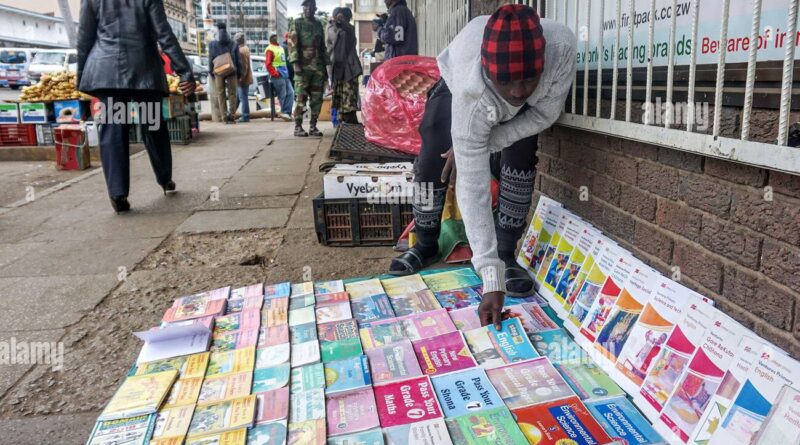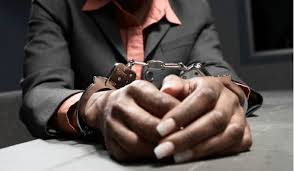Street dwellers infested Harare now a very dangerous city
…as two people are murdered in same day
By Chris Mahove
The deaths of two men who were allegedly murdered by ‘street kids’ on January 15 in two separate incidents have highlighted the growing safety concerns about the influx of dangerous homeless people who now live in the streets of Harare Central Business District.
Forbes Jila (57) was attacked and killed by three street dwellers at the corner of Kwame Nkrumah and Chinhoyi Street while he exited a bar to seek transport to Dzivaresekwa on his way from work in Darwendale.
A 20-year-old man living in the streets, Takudzwa Mombeshora, has since appeared in court in connection with the murder while his three accomplices are still at large.
On the same night, 24-year-old Kivo Muzari was also murdered in almost similar circumstances by another street dweller, Godknows Chataika, who has also been arraigned before the courts.
The two murders have raised concern among residents about the safety of the city, which has seen a surge in crimes committed by people who live in the streets, such as robberies, muggings and snatching of valuables.
Some of these people have set up bases where they are even raising families and survive on crime. Clothes hung out to dry at disused buildings and street corners have become common site in Harare, while service lanes have been turned into toilets.
Residents’ associations say the issue of people living on the streets has become a serious public policy dilemma, which they attribute to the growing economic crisis in the country and insufficient homes to accommodate citizens.
Precious Shumba, the Director of the Harare Residents Trust, told News Hub Zimbabwe that the government, through the Ministry of Public Service, Labour and Social Welfare, should be leading the conversation in the interest of social security and social welfare.
“A majority of the street people came while they were still young. They have grown on the streets where the conditions are harsh and unfriendly for survival. They were socialized to be territorial, and have established their own gangs, where the young street children are exploited and protected in exchange for security,” he said.
He said the Harare City Council should come up with feasible solutions, adding the should capture all street people and put them where they can be turned into responsible citizens.
“Complaining without helping these helpless victims of society, is unhelpful. Society has failed the street children by not taking an active role in addressing these phenomena when it started. The government has duty to protect and safeguard its most vulnerable and marginalized members of society,” he said.
Shumba said the City of Harare could only do what the country’s national social welfare policy stated but have no direct role to play in the current context.
He however, pointed out that the council should continue to monitor use of buildings in the central business district.
The HRT Director also blamed the Zimbabwe Republic Police for the current state of the city, noting that the law enforcement agents have not been doing their usual patrols in the central business district and residential areas.
Shumba said government needed to set up vocational training centres, specifically targeted at the most vulnerable members of society, including street people, and build their capacity in various technical skills.
“These could be established at commercial farms where they are given small portions to survive on. This helps to integrate them into society and make them more aware of society’s moral and cultural practices,” he said.
Combined Harare Residents Associations (CHRA) Chairperson, Reuben Akili said the issue of street dwellers had become a permanent feature in Harare and was now posing serious danger to ordinary citizens as they were no longer able to move freely in fear of being attacked, even during the day.
“If you go to Town House there are some street kids who operate from that place, you go to Africa Unity Square you can actually see them in the afternoon or morning. But again you will realize that this comes against a background where we have the police and municipal police who also have a role in enforcing laws. However, they have been reluctant to deal with the issues of street kids and if things continue to be in this manner, you will actually see that the city can be made ungovernable by these people.
Akili said the local authority should come up with measures to ensure that the whole town area was safe for people to freely move at any given time.
It would appear, however, that there is confusion among authorities regarding who should deal with the issue as the City of Harare, the Department of Social Welfare and the Home Affairs Ministry seem to be passing on the buck to each other and throwing counter accusations.
City of Harare Spokesperson, Stanley Gama, said dealing with the street dwellers was an issue for the Department of Social Welfare and not the HCC.
“The challenge of street kids is a government issue. Please contact their department of welfare,” he said.
The Ministry of Public Service, Labour and Social Welfare Deputy Director for Communication and Advocacy, Respect Tatenda Chofamba said they only dealt with kids and that the responsibility to deal with older street dwellers rested with the Ministry of Home Affairs.
However, Ministry of Home Affairs Spokesperson Philemon Chiripanyanga said the City of Harare was running away from the truth as its by-laws stated that it had the responsibility of what happened in the CBD before the police could come in.
“Bylaws are enforced by the City not Home Affairs. Yes they can invite the police if they have challenges not to abrogate their responsibilities,” he said.
Chiripanyanga said the City of Harare knew exactly what to do and how if they required the services of the police.




